#PRODUCING
Explore tagged Tumblr posts
Text


Producing a shitty witch house song with my friends a Tuesday afternoon looking creepy asf.
✝✝✝
I love them so much♡
#gloomy#music#dark music#music artists#artists on tumblr#new music#2014#2014 tumblr#witch house#witch#producer#producing#music producer#music production#salem#crim3s#crystal castles#sidewalk#grunge#rural core#rural abandoned#2014 grunge#grungy girls#tumblr girls#tumblr grunge#2013 tumblr#rural gothic#ruralcore#rural aesthetic#rural
42 notes
·
View notes
Text
As Marvel reportedly prepares to revamp its approach to television programming, “Loki” remains the only one of the nine series to get a second season. But, according to executive producer Kevin Wright, there wasn’t pressure in that fact — it was more like a responsibility.
“I could see how you could go that way. I think we found it as really freeing and exciting,” Wright told TheWrap. “Because it was like, we’re getting it because people liked it, and they were excited, and they’re super stoked. And also, because we end on the cliffhanger we end on, it would be cruel to not come back and pay that off.”
That said, Wright notes that he and his team made a concerted effort not to take fan enthusiasm for granted when crafting these six episodes.
“I think, for the team, there was a seriousness in the undertaking of it though, of: people liked it, we probably can’t just come back and play the hits and try to recapture the magic,” he explained. “Because that wouldn’t be fulfilling, even if we succeeded at it.”
He continued, “And so I think it was like, we established the world, it was a crazy world about time travel, and multiverse, but people bought in and they liked that world. And they liked these characters. And so, for us, it was like, OK, we can like really dive in deeper to this now. And hopefully people will come along with us on that ride.”
That said, like most of the other Marvel TV shows, “Loki” had shifts in its creative team. As a result, Wright and Tom Hiddleston, who executive produces the series as well as stars in it, were tasked with making sure there was a smooth transition.
“Because Kate Herron left at the end of season one, she kind of handed the reins over and said ‘I told my story, you guys run with it,’” Wright said. “It left a little bit of like a ship for us.”
According to Wright, Hiddleston was invaluable in keeping that ship afloat and moving, and has been since the show went into development almost five years ago. Wright touted Hiddleston’s devotion to the show, joking that sharing an adjoining office with him was often “like Kramer bursting into Jerry’s apartment on ‘Seinfeld’” when Hiddleston would get an idea.
“He has always been a true driving force behind the scenes of this. He’s my true producing partner, which, I can’t oversell that,” Wright said. “Truly, he’s there in the writers room. He is there as we start shooting. On weekends, we’re going in, we’re having meetings about, like, adjusting scripts so that we can find ways to get more money, and move it to build different sets and he’s involved in all those conversations.”
He continued, “And because of the shift between seasons — Kate stepping away, [Michael] Waldron stepping away to go and take on more responsibility of other Marvel projects — he and I kind of had to pick up more slack and be the continuity as we added pieces to our team, with like Justin [Benson] and Aaron [Moorehead], and Isaac, [Bauman] our cinematographer coming in, and kind of building and elevating people who are from our season one team into higher positions.”
Wright argues that the show wouldn’t be “nearly as great as it is” without Hiddleston specifically producing it.
“You know he’s going to give everything on screen. But as soon as we’re not shooting, he’s behind the scenes, making all of this work,” Wright said.
At this point, it’s unclear whether “Loki” will get, or even really need a third season, but Marvel is reportedly focused on their approach to TV going forward.
“We’re trying to marry the Marvel culture with the traditional television culture,” Brad Winderbaum, Marvel’s head of streaming, television and animation told THR. “It comes down to, ‘How can we tell stories in television that honor what’s so great about the source material?’”
72 notes
·
View notes
Note
this is a genuine question not at all meant as a rude gotcha, but I feel like I've seen lots of people cite the relatively low barrier of entry as a huge advantage of podcasts as a medium, "if you have access to decent audio tech you can make a podcast" etc etc. So where does the need to sell a script come in? Is it a financial thing, and IP thing, something else?
this doesn't read like a rude gotcha at all, it's a really good question! there is a much lower barrier to entry when it comes to podcasts compared to tv, film, theater, etc. (though not as low as writing a book if we're talking about hard resources - you can technically write a book with just a laptop and a dream and then self publish! though as a writer who has written a lot of scripts and four books (3 published) writing a book is a much bigger psychological burden imo lol).
the need to sell a script, for me, is entirely a financial thing. if I had the money to produce podcasts at the level I want to entirely independently, I would! I know how to do it! but, unfortunately, I really only have the funds to produce something like @breakerwhiskey - a single narrator daily podcast that I make entirely on my own.
and that show is actually a great example of just how low the barrier is: I actually record the whole thing on a CB radio I got off of ebay for 30 bucks, my editing software is $50/month (I do a lot of editing, so this is an expense that isn't just for that show) and there are no hosting costs for it. the only thing it truly costs me is time and effort.
not every show I want to make is single narrator. a lot of the shows I've made involve large casts, full sound design, other writers, studio recording, scoring, and sometimes full cast albums (my first show, The Bright Sessions had all of those). I've worked on shows that have had budgets of 100 dollars and worked on shows that cost nearly half a million dollars. if anyone is curious about the nitty gritty of budgets, I made a huge amount of public, free resources about making audio drama earlier this year that has example budgets in these ranges!
back in the beginning of my career, I asked actors to work for free or sound designers to work for a tiny fee, because I was doing it all for free and we were all starting out. I don't like doing that anymore. so even if I'm making a show with only a few actors and a single sound designer...well, if you want an experienced sound designer and to pay everyone fairly (which I do!), it's going to cost you at least a few thousand dollars. when you're already writing something for free, it can be hard to justify spending that kind of money. I've sound designed in the past - and will be doing so again in the near future for another indie show of mine - but I'm not very good at it. that's usually the biggest expense that I want to have covered by an outside budget.
but if I'm being really honest, I want to be paid to write! while I do a lot of things - direct, produce, act, consult, etc. - writing is my main love and I want it to be the majority of my income. I'm really fortunate to be a full-time creative and I still do a lot of work independently for no money, but when I have a show that would be too expensive to produce on my own, ideally I want someone else footing the bill and paying me to write the scripts.
I love that audio fiction has the low barrier to entry it does, because I think hobbyists are incredible - it is a beautiful and generous thing to provide your labor freely to something creative and then share it with the world - but the barrier to being a professional audio drama writer is certainly higher. I'm very lucky to already be there, but, as every creative will tell you, even after you've had several successes and established yourself in the field, it can still be hard to make a living!
anyway, I hope this answers your question! I love talking about this stuff, so if anyone else is curious about this kind of thing, please ask away.
#lauren writes things#audio fiction#producing#also I say I don't like doing it anymore#but that's exactly what briggon andrew and I are working on#it's gonna be a show where we just split profits equally bc I can't afford to pay them lol#and I'll be sound designing it myself#so apologies in advance#also my GOD lauren can you be succinct once in your GODDAMN LIFE#why are all my posts so long i'm so sorry#also I don't get into it in this post#but using my book example as a jumping off point#obviously it is MUCH more complicated than that#bc self publishing/promoting/etc.#and writing the book in the first place!#is an ENORMOUS effort#as is making an audio drama!#also the grand irony in this#is that the show i was referencing in my original post is a show i first came up with to do independently lol#a two person show for briggon and andrew in fact#and then I happened to mention it to some producers I know and they liked it#so that's a show I COULD make for no money!#but they want to pitch it out and there's no harm in asking around#and in the meantime i just came up with another show for briggon and andrew haha#lauren answers things
63 notes
·
View notes
Text
Kitchen Prep: there's a shrimp on the floor of my tunnel. you know how I feel about seafood on my floors :(
10 notes
·
View notes
Text

Just finished mixing a song I produced for my mom, and completed the video for my cover. Keeping myself distracted to forget that my computer isn’t working anymore 😭. This won’t last forever, though—I can’t wait to upgrade soon.🤫
12 notes
·
View notes
Text
"It was my first outing and such a personal story on such a big scale, so I went in every day with my motto: Trust your collaborators and don’t feel like you have everything on your shoulders."
-Erica Tremblay, writer/director/producer of Fancy Dance

#sagindie#indie film#filmmaking#directing#screenwriting#producing#erica tremblay#fancy dance#lily gladstone
14 notes
·
View notes
Text

Jeremiah 17:8 (NLT) - They are like trees planted along a riverbank, with roots that reach deep into the water. Such trees are not bothered by the heat or worried by long months of drought. Their leaves stay green, and they never stop producing fruit.
59 notes
·
View notes
Text

#art#fyp#indeedgoodman#legend#studio#music production#production#producing#music#garageband#game boy#gameboy
5 notes
·
View notes
Text

I just relaunched my portfolio site today! Would you hire this guy?
#Director#Editor#portfolio#web site#hire me#video editing#directing#producing#production#post production#Los Angeles
7 notes
·
View notes
Text
fababoi, u want to let me look at your session files so bad. u want to email me any song's (16 candles. Headfirst slide. our lawyer.) .ptx as soon as possible. ur currently uploading ur sessions for all the recording engineer major fans out there. where? idc, email it to me pls pls *breaks down sobbing* I just need to know what greatness looks like while I slog through my own mediocrity
#can you tell midterms are getting to me#fob#fall out boy#i want to see the files for folie so bad it makes me look silly af#recording engineering#producing#entertainment technology#how am i ever going to be transmasc patrick stump now
3 notes
·
View notes
Text
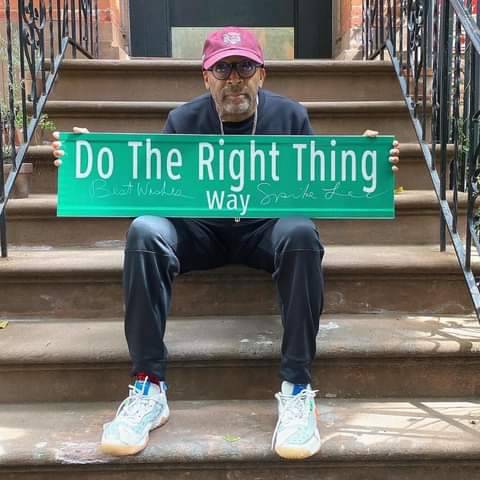
47 notes
·
View notes
Text
Ronnie Radke writing and producing music for Dead Girls Academy (2018)
After years of friendship and musical exchange with Michael Orlando (formerly Michael Vampire, frontman of band Vampires Everywhere!) Ronnie Radke chose to write and produce a whole album to Michael's new band, Dead Girls Academy.
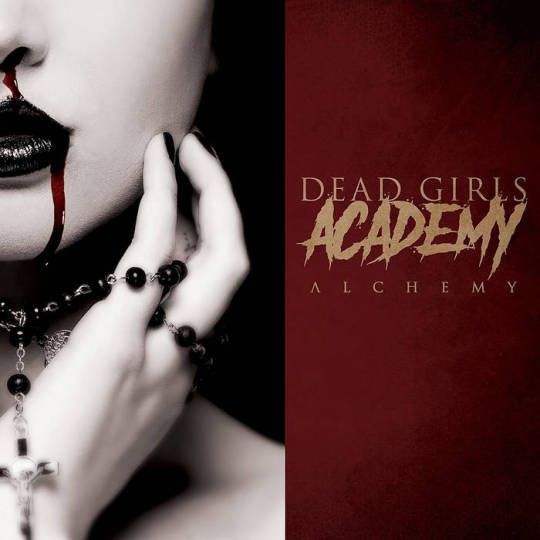

This debut album called "Alchemy" contains some extremely melodic, great punk-rock-pop songs, carrying the vibes of Ronnie's earlier productions to band Survive This! from year 2013, but also the electronic and ambient styles which also established the upcoming huge genre change in Falling In Reverse's music.
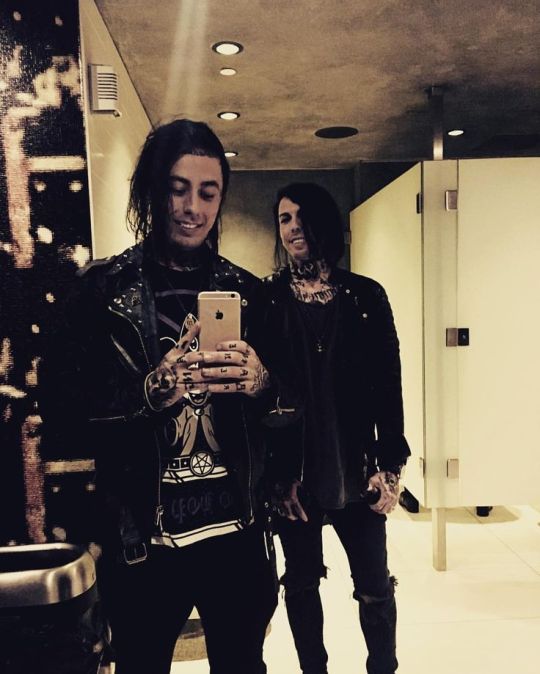
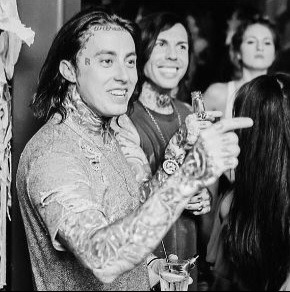
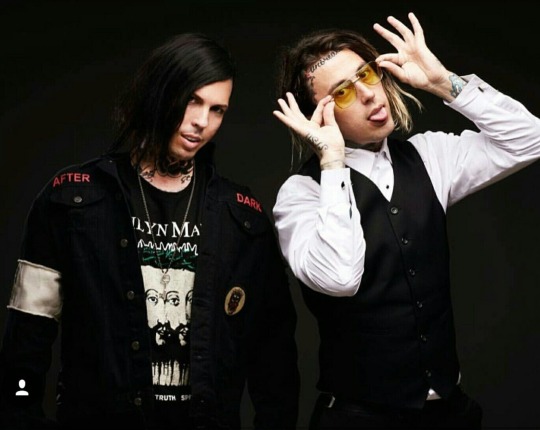
Michael Orlando stated in an interview on Youtube that Ronnie Radke inspired him in many ways during the release of "Alchemy". He was not only writing the songs, but even helped Michael stretching his vocal capacities.
The last song of the album, "Far Away" is the perfect example of Ronnie's new wave experiments in electronic pop and ambient techno music mixed with generic rock sounds and melodies which will be later unfolded on his 2017 Falling In Reverse album, "Coming Home".
youtube
7 notes
·
View notes
Text

Our supervisor approved.
2 notes
·
View notes
Text
[speaker goes off script]
Production Manager: (groaning) I wanted to have lunch at a regular time today
15 notes
·
View notes